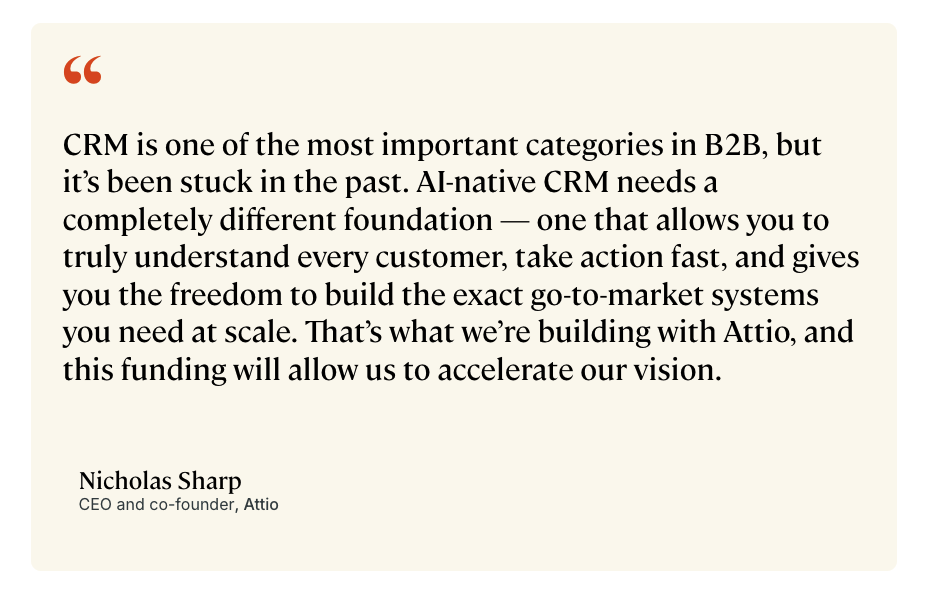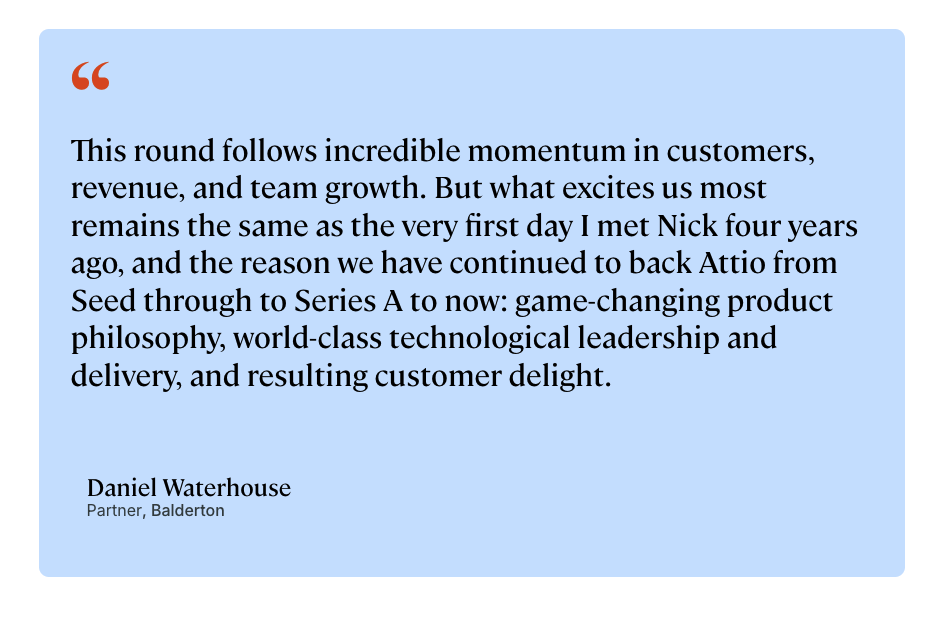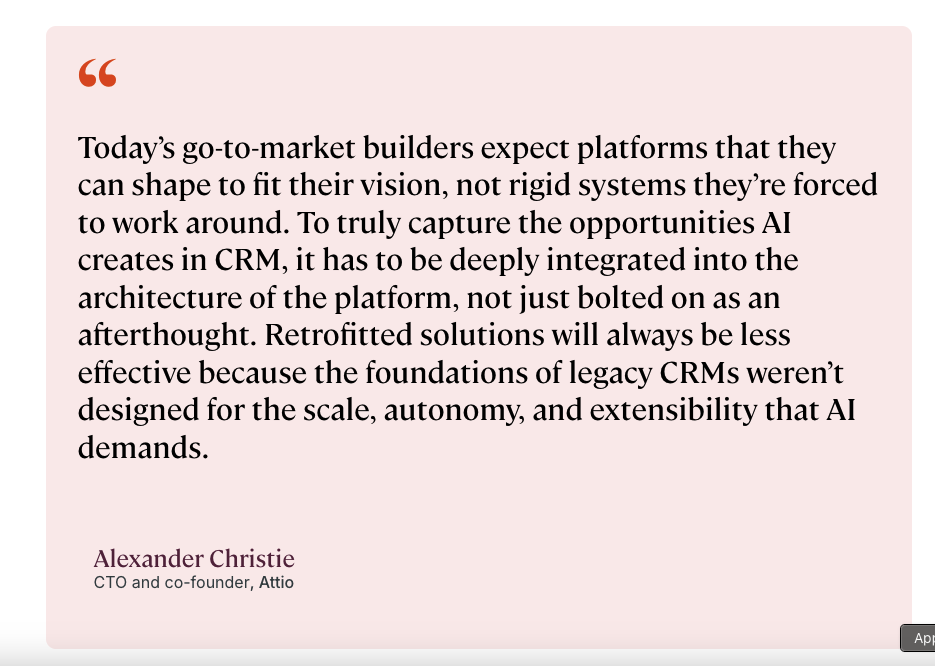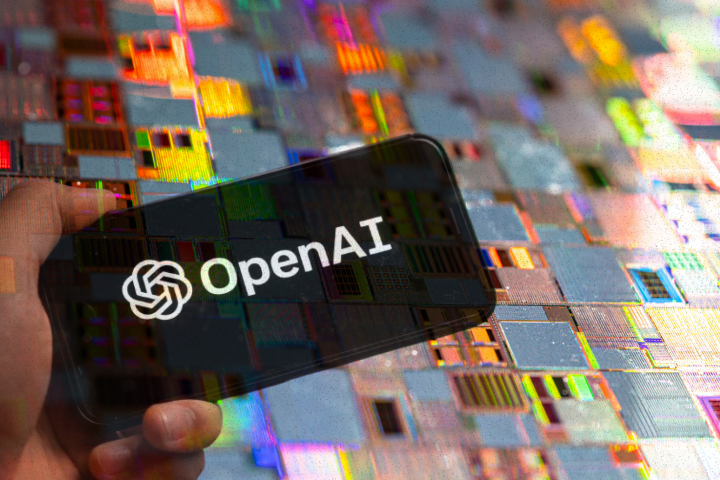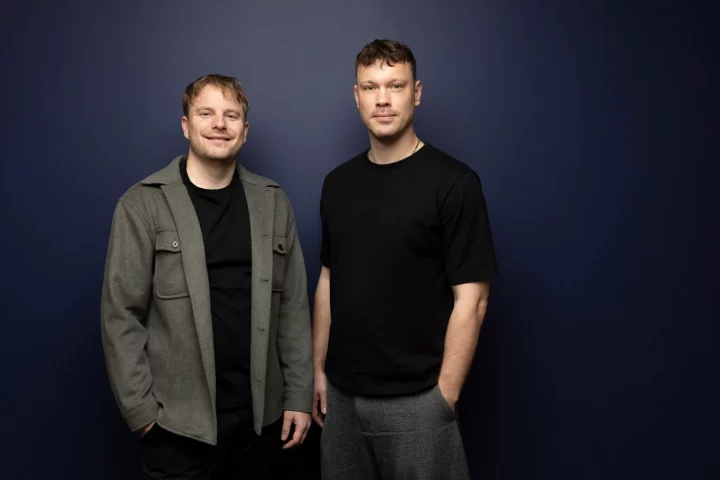Attio, a UK- and US-based startup building what it describes as the first AI-native customer relationship management (CRM) system, has secured $52 million in a Series B funding round led by GV (formerly Google Ventures), with participation from Redpoint Ventures, Balderton Capital, Point Nine, and 01A.
The round brings the company’s total funding to $116 million and underscores growing investor confidence in next-generation enterprise software reimagined for the artificial intelligence era.
Founded in 2022 by CEO Nicolas Sharp and CTO Alexander Christie, Attio has positioned itself as a challenger to legacy CRM platforms such as Salesforce and HubSpot, which have long dominated the go-to-market software landscape.
Rather than layering AI features onto existing architectures, Attio has designed its platform from the ground up to integrate artificial intelligence at the foundational level.
The company argues that traditional CRMs are structurally ill-suited to the demands of modern, data-driven sales and marketing teams, citing inflexible data models, costly integrations, and slow adaptation to changing business needs.
In two years, Attio has amassed 5,000 paying customers, including AI-native startups such as Lovable, Granola, Modal, and Replicate. The company reports it is on track to quadruple its annual recurring revenue (ARR) in 2025, reflecting strong early-market traction among technology-driven businesses seeking agile, scalable tools for customer engagement.
The core of Attio’s offering lies in its AI-native architecture, built on what the company calls “primitives”,modular, intelligent components that enable real-time data ingestion, automated workflows, programmable interfaces, agent collaboration, granular permissions, and predictive intelligence.
These elements allow users to dynamically configure their CRM environments without relying on external tools or vendor-led updates.
“Traditional CRM categories in B2B software have been stagnant for years,” said Nicolas Sharp, co-founder and CEO of Attio. “To truly harness AI, we need systems that don’t just bolt on intelligence but are built for it, systems that understand context, act quickly, and scale with the complexity of modern go-to-market strategies.”
Alexander Christie, co-founder and CTO, emphasized that superficial AI integration cannot overcome the architectural limitations of legacy platforms. “You can’t just add AI to a system designed in the pre-cloud era and expect transformative results,” he said.
“True AI-native platforms require deep architectural rethinking, scalability, autonomy, and extensibility built in from day one.”
Customers are already using Attio to automate complex sales workflows, ingest data in real time from multiple sources, and build custom CRM applications via its App SDK. The platform’s flexibility enables teams to tailor their go-to-market infrastructure to specific business models, avoiding the costly and time-consuming implementations typical of traditional CRM deployments.
Michael McBride, General Partner at GV and former Chief Revenue Officer at GitLab, joined Attio’s board as part of the investment. In a statement, he noted that the CRM market has seen little structural innovation in decades.
“It’s been 25 years since the last major platform shift in CRM,one of the largest software markets in the world,” McBride said. “Attio has the architecture, vision, and customer momentum to define the future of go-to-market software. This isn’t just another point solution; it’s the foundation for the AI-era CRM.”
The funding will be used to expand Attio’s engineering team, accelerate product development, and deepen investment in research and development, particularly in agent-based collaboration, predictive analytics, and fine-grained access controls.
Commercially, the company plans to scale its outreach to a new generation of revenue operators, product-led growth teams, and technical founders who prioritize customization, speed, and interoperability.
Industry analysts see Attio’s rise as part of a broader transformation in enterprise software, where AI is no longer a feature but a design principle. According to Gartner, by 2026, over 50% of new enterprise applications will be built on AI-augmented development platforms, up from less than 15% in 2023.
Attio’s approach aligns with this shift, aiming to replace monolithic, one-size-fits-all CRMs with modular, intelligent systems that evolve with user needs.
While the CRM market remains dominated by established players, Salesforce reported $84 billion in total revenue for fiscal year 2024,new entrants like Attio are capitalizing on dissatisfaction with legacy systems’ complexity and rigidity.
Smaller, agile companies, particularly in the AI and developer tooling space, are increasingly opting for platforms that offer native programmability and faster iteration cycles.
However, challenges remain. Penetrating enterprise accounts, where CRM systems are deeply embedded in workflows and integrated across departments, will require more than technical superiority. Trust, data governance, and compliance will be critical hurdles as Attio scales.



